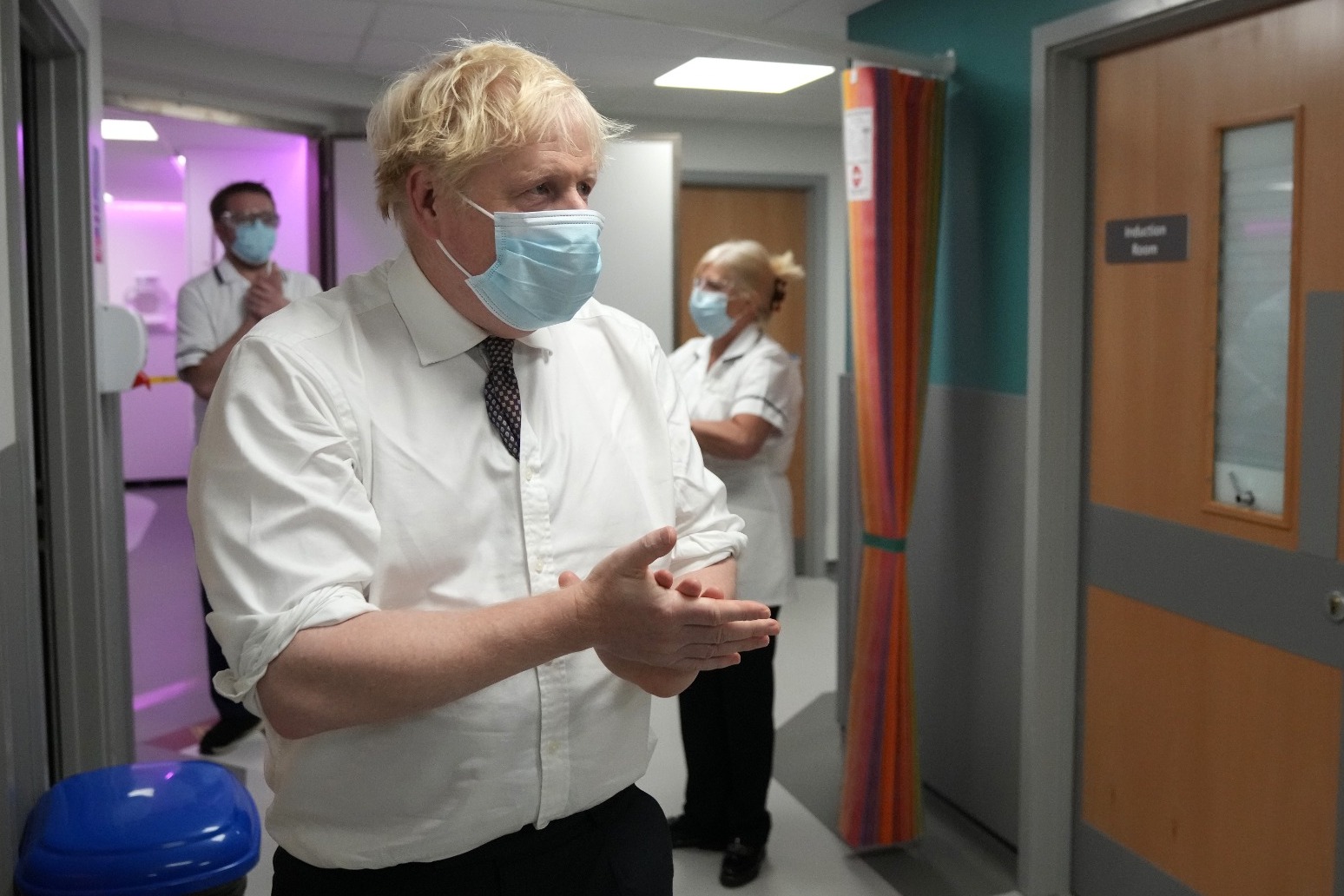
Johnson tells haulage industry to stop relying on cheap foreign drivers
Boris Johnson has issued a fresh warning to the road haulage industry that it cannot expect to rely on cheap immigrant labour in future.
Speaking on the eve of the Conservative Party conference in Manchester, the Prime Minister said he wanted to end the UK’s reliance on low-wage foreign workers and for it to become “a well-paid, well-skilled, highly productive economy”.
His comments came after the Government announced it was extending 5,000 temporary visas being offered to foreign lorry drivers amid warnings of shortages on the shelves in the run-up to Christmas.
They include 300 bespoke visas for tanker drivers who will be able to come into the UK “immediately” amid claims the fuel crisis is getting worse in some parts of the country.
Speaking during a visit to Leeds General Infirmary, Mr Johnson said the situation on forecourts was “stabilising” after days of filling stations running dry due to panic buying.
He said some 200 troops, including 100 military drivers, were being deployed from Monday to support the supply effort as it was important to take “all possible precautions”.
But while the Government was keeping the situation regarding visas under review, Mr Johnson made clear his determination to resist further pressure from the haulage industry and other sectors to ease the immigration rules.
“Of course we keep everything under review but what we don’t want to do is go back to a situation in which we basically allowed the road haulage industry to be sustained with a lot of low-wage immigration that meant that wages didn’t go up and the quality of the job didn’t go up,” he said.
“The weird thing is now, that people don’t want to go into the road haulage industry, don’t want to be lorry drivers, precisely because you have that mass immigration approach that held wages down, that held the quality of the job down.”
“I think what the UK shouldn’t be doing is to continue to try to be a low-wage, low-skills, low-productivity economy.
“People don’t want that. They want us to be a well-paid, well-skilled, highly productive economy and that’s where we’re going.”
Earlier, the Petrol Retailers Association said that while the fuel situation was easing in Scotland, the North of England and the Midlands, elsewhere it was deteriorating.
PRA chairman Brian Madderson – representing independent retailers – said it remains a “really big problem” in London and the South East, where long queues continue to be reported.
He told the BBC Radio 4 Today programme: “In London and the South East and possibly parts of eastern England, if anything it had got worse.”
Mr Madderson welcomed deployment of military drivers but said in it would not be a “major panacea” given the volumes they would be able carry.
He said the most effective measure would be the “prioritisation” of deliveries to filling stations in the worst hit areas.
Mr Madderson also warned that rising world oil prices mean motorists should expect higher prices at the pumps when filling stations are replenished.
“Expect anything from 1, 2 or even 3p a litre increases at the pump. This is not profiteering. This is genuine wholesale price increases causes by global factors,” he said.
Published: by Radio NewsHub